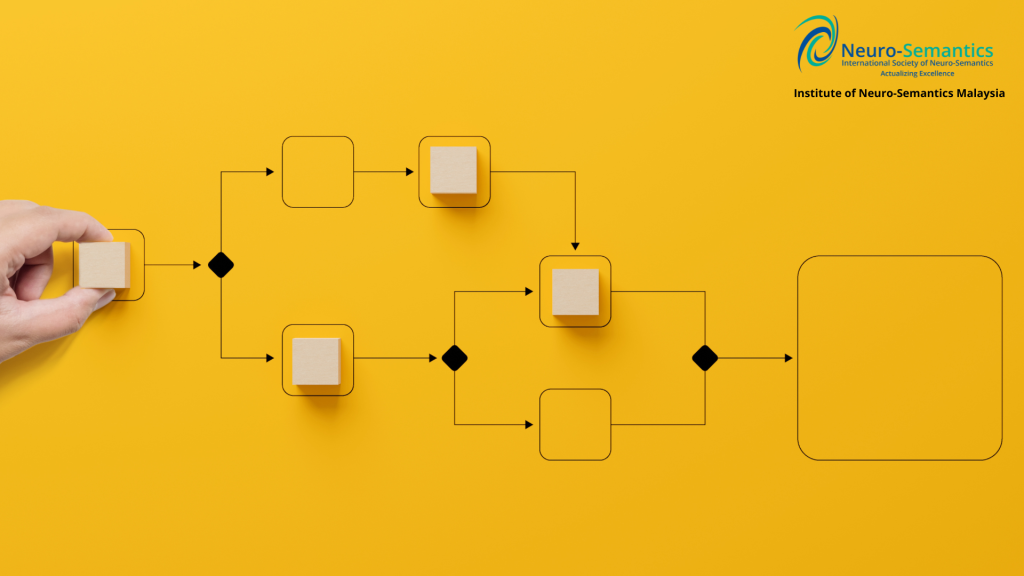
When contemplating a goal, your mental focus typically gravitates towards either the ultimate outcome or the steps involved in achieving it. Which aspect dominates your thoughts? Does your mind fixate on the goal itself—the final destination and the anticipated results? Alternatively, does it delve into the intricacies of the processes required to attain the goal, considering steps, stages, activities, skills, sub-skills, procedures, and strategies? While it’s possible to consider both, many individuals tend to concentrate more on either the process or the results.
Result-oriented thinking generates motivation and excitement about reaching the desired outcome. The prospect of experiencing the fruits of one’s labor serves as a source of inspiration, encouraging bold dreams and a willingness to embark on an adventurous journey. However, some individuals undermine this positive mindset by envisioning results in overly grand, unrealistic, and unattainable terms, leading to feelings of overwhelm, paralysis, and helplessness.
Conversely, process-oriented thinking involves organizing actions into a practical plan to achieve the goal. This approach views achievement as a dynamic, ongoing activity, considering what, when, how, and with whom tasks are performed. Process thinking also entails consideration of resources necessary for goal attainment, directing attention and emotions toward specific skills and competencies associated with the process.
While both result and process thinking have their merits, process thinking proves to be more crucial for actualizing outcomes. Solely fixating on end results, particularly when the focus should be on processes, misguides the mind and can hinder success. In the corporate world, managers often fall into this trap, prioritizing results without acknowledging the methods employed or the experiences of those contributing to success.
Similarly, individuals aiming to lose weight may focus solely on the numerical goal, neglecting the quality of the processes such as diet and exercise. This oversight leaves them unaware of necessary improvements or changes in their daily practices, risking the undermining of their resolution.
While achieving goals brings joy, there is a deeper and more fulfilling satisfaction in concentrating on the processes involved. Finding enjoyment in the steps of the journey itself reveals that the true essence of fun lies in the process rather than the destination. Whether or not the ultimate goal is reached, the recognition that the journey holds intrinsic value becomes apparent. In process thinking, the experience, learning, and personal growth take precedence over the actual results, transforming life from the inside out.
In Meta-Coaching, fixating solely on achieving a specific score or completing credentials may obscure the inner dynamics that make coaching truly remarkable. The inner processes, encompassing interpersonal skills such as listening, supporting, framing, inducing states, and questioning, constitute the most crucial aspect of coaching. Questions for consideration include:
How much emphasis do you place on the coaching processes?
How consciously aware are you of these processes while coaching?
To what extent do you distinguish sub-skills within specific coaching processes?
The Bottom Line
While result-focused individuals may derive motivation from envisioned outcomes, the risk of overwhelming and unrealistic expectations exists. In contrast, process-oriented thinkers strategically plan steps, considering skills and resources. The emphasis on process proves essential for actualizing goals, as fixating solely on results may misguide and hinder success. The narrative extends this concept to various contexts, highlighting the importance of appreciating the journey itself, especially in areas like weight loss and corporate management. In Meta-Coaching, a focus on inner coaching processes, such as interpersonal skills, emerges as vital for coaching excellence.
Curated by Danielle Tan.
Reference:
- [Certified_meta-coach] 2023 Morpheus #53 PROCESS AND RESULTS THINKING by L. Michael Hall, Ph.D. Executive Director, ISNS.